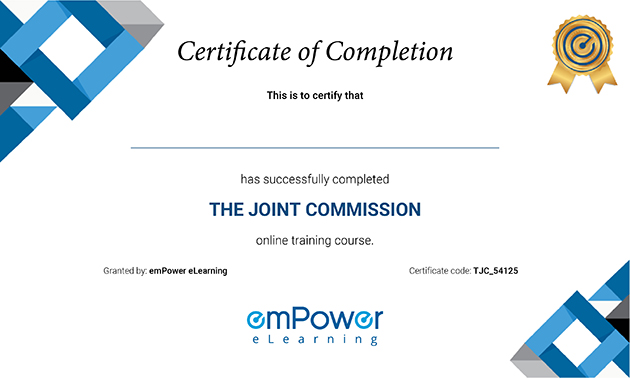Empowering Healthcare Staff: Patient Rights Online Training for Professionals
Enhance Patient Care and Compliance: Equip Your Staff with Essential Knowledge About Patient Rights with emPower’s patient rights online training.

Our Client

































What is Patient Rights online training
The primary objective of patient rights online training is to educate both patients and healthcare personnel about the intricacies of patient rights and patient responsibilities. This knowledge serves as a foundation for fostering a collaborative and empathetic approach to healthcare.
To begin, the course explores the four distinct models that define the relationships between healthcare facilities and patients. Understanding these models provides valuable insights into how patient care can be tailored to meet individual needs.
The subsequent module delves into patient rights. Participants will gain a thorough understanding of the rights afforded to patients, including their right to access medical records and obtain requested copies for informed decision-making.
Transitioning to the responsibilities of patients, the course emphasizes the role they play in maintaining their rights and contributing to their overall healthcare experience.
Additionally, the patient rights online training addresses non-available rights, dispelling common misconceptions and shedding light on prevalent myths surrounding patient rights.
Course Description
| Category | The Joint Commission |
| Course Name | Patients Right |
| Duration | 30 mins |
| Certificate Included | Yes |
| Languages | English |
| Course Type | Interactive online training |
| Narration | Yes |
| Format | LM-light, SCORM 1.2 |
| Supported Devices | Desktop/Laptop, Tablet, Phone |
| Last Updated | June 30, 2021 |
What you’ll learn
- Four Models of Healthcare Facility-Patient Relationships
- Patient Rights in the US:
- Right to Access Medical Records
- Right to Transfer
- Patient Responsibilities in Maintaining Their Rights
- Non-Available Rights
- Dispelling Myths About Patient Rights
- Handling Exceptional Situations
Curriculum
- Introduction to Patient rights online training
- Current models of patient rights
- Patient rights in the USA
- Right to be treated with respect
- Right to obtain medical records
- Right to privacy of medical records
- Right to make a treatment choice
- Right to informed consent
- Right to refuse treatment
- Right to make decisions about end-of-life care
- Right to get transfer
- Right to expect proper communication to referring physician
- Right to additional resources
- Right to know appointment details
- Patient responsibilities
- Maintaining healthy habits
- Being respectful to provider
- Being honest with provider
- Complying with treatment plan
- Preparing for emergencies
- Reading behind the headlines
- Making decisions responsibly
- Understanding prescription drugs and their possible effects
- Meeting financial obligations
- Reporting fraud and wrongdoing
- Avoiding putting others at risk
- Non-available rights
- Myths about patient rights
- Exceptional situations
Who Should Attend?
- Healthcare Providers
- Administrative and Support Staff
- Patient Advocates
- Compliance Officers
- All Staff
Why emPower
100s of customers
- 14+ Years of experience in working with small to large businesses from different industries
- 95% customer retention
Customer Experience
- 24x7 dedicated support and toll free number
- 99%+ guaranteed uptime
Extremely Cost-effective
- As low as $0.99/user/yr
- We will match or better the price of your current LMS
Effective Courses
- Each course is 20-40 min long to ensure engagement with quizzes and certificate
- SCORM 1.2 Compliant
Implementation
- No setup costs
- We deploy your customized solution in less than 48 hours
Our Achievements
Here you can review some statistics about our Education Center
Related Courses
Start Your Certification Course Today
Patient rights and education refer to the legal and ethical entitlements of patients to receive respectful, informed, and quality healthcare, coupled with the dissemination of knowledge to empower patients in making informed healthcare decisions.
Patient responsibilities typically include three main types:
- Self-Management: Patients are responsible for managing their health, adhering to prescribed treatments, and following medical advice.
- Communication: Patients should communicate openly and honestly with healthcare providers, sharing relevant information about their health.
- Collaboration: Patients should actively participate in decisions about their care and work collaboratively with healthcare teams to achieve the best outcomes
The purpose of patient education is to empower individuals with knowledge and skills to make informed healthcare decisions, manage their health effectively, prevent illness, and actively participate in their own care, ultimately improving health outcomes.

